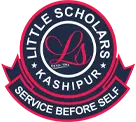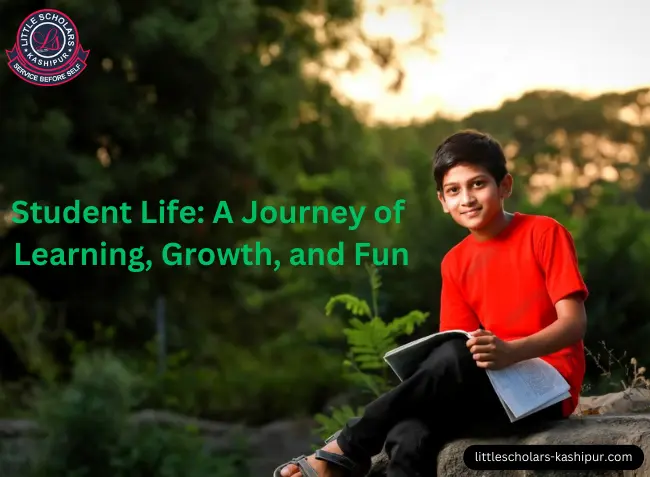When the phrase "student life" is said, what comes to mind? For many, it’s a whirlwind of classes, friendships, late-night study sessions, and new experiences. Student life is a unique period marked by learning, growth, and, yes, a lot of fun. It's a time when young individuals shape their futures, build lifelong friendships, and develop skills that will carry them through adulthood.
The Academic Aspect
importance of Education
At the core of student life is education. It’s not just about taking exams but also about gaining knowledge, developing critical thinking, and preparing for the future. Education opens doors to opportunities and is the foundation upon which students build their careers.
Balancing Studies and Extracurriculars
It can be difficult, but worthwhile, to strike a balance between extracurricular activities and academics. Students learn time management, teamwork, and leadership skills through sports, clubs, and other activities, which are equally important as academic achievements.
Time Management
Effective Time Management Strategies
Time is a precious commodity in student life. Effective time management strategies include creating a study schedule, setting priorities, and breaking tasks into manageable chunks. Procrastination is the enemy, and beating it requires discipline and planning.
Tools and Apps for Time Management
Thankfully, technology offers numerous tools to help students manage their time. Apps like Trello, Google Calendar, and Todoist can keep track of assignments, deadlines, and social events, ensuring nothing slips through the cracks.
Extracurricular Activities
Benefits of Extracurriculars
Engaging in extracurricular activities provides a break from academics and helps in personal development. Students involved in sports, arts, or clubs often find a sense of community and improve their social and leadership skills.
Popular Extracurricular Activities
Popular extracurricular activities include sports teams, music and arts clubs, debate teams, and volunteer groups. These activities help students discover their passions and develop talents outside the classroom.
Social Life
Building Friendships
Building and maintaining friendships is a vital part of student life. These connections offer assistance, company, and a feeling of inclusion. Joining clubs and attending social events can help students meet new people and form lasting bonds.
The Role of Social Media
Social media plays a significant role in modern student life. It’s a way to stay connected, share experiences, and even collaborate on projects. However, balancing online interactions with face-to-face communication is essential to building meaningful relationships.
Health and Well-being
Importance of Physical Health
Staying physically healthy is crucial for students. Regular exercise, a balanced diet, and adequate sleep can significantly impact academic performance and overall well-being. Colleges often offer gym facilities and sports programs to help students stay active.
Mental Health Tips
Mental health is equally important. Students frequently experience stress, anxiety, and despair. It's important to seek help, practice mindfulness, and engage in activities that reduce stress, such as yoga or meditation.
Financial Management
Budgeting Tips for Students
Managing finances is a critical skill for students. Budgeting involves tracking expenses, cutting unnecessary costs, and saving wherever possible. Students should also be aware of scholarships, grants, and student discounts to help manage their finances better.
Part-time Jobs and Internships
Part-time jobs and internships provide financial relief and valuable work experience. Balancing work and studies can be challenging but rewarding, offering insights into the professional world and helping build a strong resume.
Living Arrangements
On-campus vs. Off-campus Living
Choosing between on-campus and off-campus living depends on personal preferences and financial considerations. On-campus housing offers convenience and a sense of community, while off-campus living provides more independence and often lower costs.
Tips for Roommates
Living with roommates can be a rewarding experience but requires communication and compromise. Establishing ground rules and respecting each other’s space and privacy are keys to harmonious living arrangements.
Study Techniques
Effective Study Methods
Effective study methods include active learning, using flashcards, and participating in study groups. Finding a quiet, comfortable place to study and taking regular breaks can enhance concentration and retention.
Utilizing Campus Resources
Campus resources, such as libraries, tutoring centers, and academic advisors, are invaluable. Students should take full advantage of these resources to support their academic success.
Technology in Student Life
Helpful Gadgets and Tools
Gadgets like laptops, tablets, and e-readers are essential for modern students. These tools aid in research, note-taking, and accessing online resources, making studying more efficient.
Online Learning Platforms
Online learning platforms like Coursera, Khan Academy, and edX offer additional learning opportunities. These platforms provide courses on various subjects, helping students supplement their education and explore new interests.
Challenges and Solutions
Common Student Challenges
importanceCommon challenges include academic pressure, time management, financial stress, and homesickness.To overcome these obstacles, one must first acknowledge them.
Overcoming Academic Pressure
To combat academic pressure, students should maintain a balanced lifestyle, seek help from professors and peers, and practice stress relief techniques. Setting realistic goals and celebrating small achievements can also boost confidence and motivation.
Career Planning
importance of Career Planning
Career planning is an ongoing process that helps students align their education with career goals. It involves exploring different career options, gaining relevant experience, and setting achievable objectives.
Resources for Career Guidance
Career centers, internships, and mentorship programs provide guidance and support. Networking with professionals and attending career fairs can also open doors to future opportunities.
Personal Growth
Developing Soft Skills
Soft skills like communication, teamwork, and problem-solving are crucial for personal and professional success. Students should seek opportunities to develop these skills through group projects, extracurricular activities, and part-time jobs.
Setting Personal Goals
Setting personal goals helps students stay focused and motivated. These goals can range from academic achievements to personal development milestones. Regularly reviewing and adjusting these goals ensures continuous growth.
Balancing Fun and Responsibility
Finding the Right Balance
Balancing fun and responsibility is key to a fulfilling student life. It’s important to prioritize tasks but also make time for relaxation and hobbies. Finding this balance can prevent burnout and enhance overall well-being.
Time for Hobbies and Interests
Pursuing hobbies and interests is essential for personal happiness. Whether it’s playing a sport, learning an instrument, or volunteering, these activities provide a break from academic pressures and contribute to a well-rounded life.
Conclusion
Reflecting on student life, it’s clear that this period is a blend of challenges and opportunities. It's a time of significant personal and academic growth, filled with experiences that shape one's future. Embracing every aspect of student life, from academics to social interactions, can lead to a fulfilling and enriching journey.




